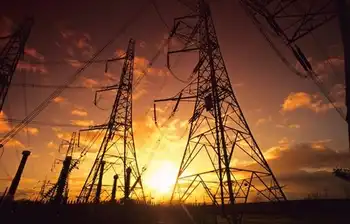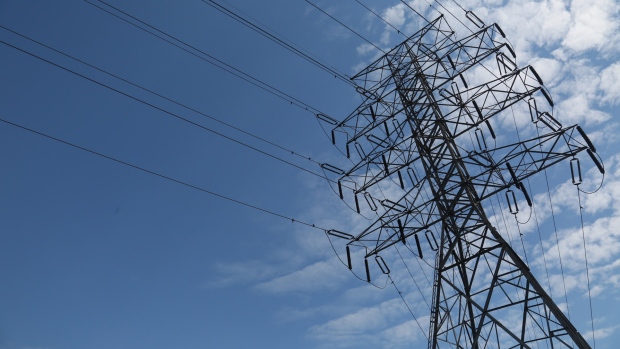Oklahoma Oil, Gas Producers Say Energy Policy Need Is Urgent
- The United States is too reliant on foreign oil, Oklahoma's independent oil and gas producers say.
Much of the oil that is consumed in the United States comes from the Middle East, the suspected origin of last month's terrorist attacks.
Mike Oxley, the chief executive of Oxley Petroleum Co., and other independent oil and gas producers in Oklahoma have a problem with that.
"We're trusting our freedom and security to people who don't like us," Oxley said.
In the aftermath of the Sept. 11 terrorist attacks, more Americans are raising questions about the United States' presence in the Middle East and its efforts to protect the region's vast oil supplies.
"They hate us because we're in their face in their countries," said Mickey Thompson, executive vice president of the Oklahoma Independent Petroleum Association. "There is only one reason we're there. Oil."
Members of the OIPA met Monday at the Doubletree Hotel Downtown in Tulsa to discuss the United States' war against terrorism and how it could impact U.S. energy policy.
The United States gets nearly 60 percent of its crude oil from other countries, including Iraq, Iran and Saudi Arabia, said Don Betz, a United Nations consultant and executive vice president of the University of Central Oklahoma in Edmond. And nine of the 11 countries in OPEC, which controls two-thirds of the world's known oil reserves, are primarily Muslim, the same faith proclaimed by those who allegedly orchestrated the Sept. 11 attacks, Betz said.
Many Muslims, however, have stressed that suspected terrorism mastermind Osama bin Laden and his followers do not represent Islam, which they say is a peaceful religion.
To some oil industry observers, the attacks illustrate a need to promote domestic energy production through tax incentives and less regulation. With a million marginal oil and gas wells in the United States, such action could reduce substantially the nation's dependence on oil imports, Thompson said.
"I believe that's how we fight terrorism in our industry," he said.
U.S. Sen. Jim Inhofe has proposed legislation that would establish a comprehensive energy policy, one that lifts drilling restrictions in Alaska's Arctic National Wildlife Refuge and includes tax incentives for domestic producers.
Inhofe said he is confident that such a measure would pass Congress if it ever reaches the floor for a vote.
"We have the votes," Inhofe said.
But U.S. military operations in Afghanistan and efforts to prevent further anthrax infections may prevent Congress from voting on a national energy policy this year, said Ragon Gentry, Sen. Inhofe's state director. Inhofe, a member of the Senate Armed Services and Intelligence committees, believes that the issue is one of national security.
The Oklahoma Republican tried recently to force a vote on an energy plan that called for drilling in ANWR by adding amendments to a $345 billion defense bill that was designed to support the war against terrorism. Democrats blocked the amendments from consideration.
"Our energy policy is tied hand-in-hand with our security issue," Gentry said. "The senator feels this is our best opportunity to do something on this."
The residents of most Middle Eastern countries live in poverty and blame the United States for their difficulties, Betz said. U.S. support of Israel is what many Middle Easterners hate most about our country, he said.
"What if the strikes against Afghanistan spill into other countries?" Betz asked. Middle East leaders are "discussing that very issue."
President Bush is attempting to assemble a coalition of countries to wage a war against terrorism, Betz explained. It may be an excellent opportunity for the United States to establish a new relationship with oil-rich Iran, he said.
"It is a huge country sitting on a bunch of oil," Betz said.
Congress shouldn't wait to enact a national energy policy that is aimed at increasing domestic energy production, Oklahoma Corporation Commissioner Denise Bode said.
The United States has been buying oil from Iraq and others on its list of countries who support or harbor terrorists long enough, she said.
"We needed it yesterday," said Bode, a candidate for state attorney general, of the policy.
The United States accounts for 22 percent of the world's oil consumption. The war against terrorism is an action that could further limit U.S. energy supplies, Bode said.
"We go to OPEC anytime there is any problem, and we plead for more oil production," she said. "Isn't that sad?"
Oxley said he favors a floor price for crude oil. That would encourage producers to maintain drilling and production of oil and gas.
"It would provide our industry the stability it needs to make projections for its investments," he said.
Oxley has spent millions of dollars on several deep drilling projects in western Oklahoma. The company has identified huge natural gas reserves and plans to drill about 15 deep gas wells over the next year.
"If we want energy, we'll have to drill deeper," Oxley said.
Related News

Huge offshore wind turbine that can power 18,000 homes
BERLIN - Siemens Gamesa Renewable Energy (SGRE) has released details of a 14-megawatt (MW) offshore wind turbine, in the latest example of how technology in the sector is increasing in scale.
With 108-meter-long blades and a rotor diameter of 222 meters, the dimensions of the SG 14-222 DD turbine are significant.
In a statement Tuesday, SGRE said that one turbine would be able to power roughly 18,000 average European households annually, while its capacity can also be boosted to 15 MW if needed. A prototype of the turbine is set to be ready by 2021, and it’s expected to be commercially available…




